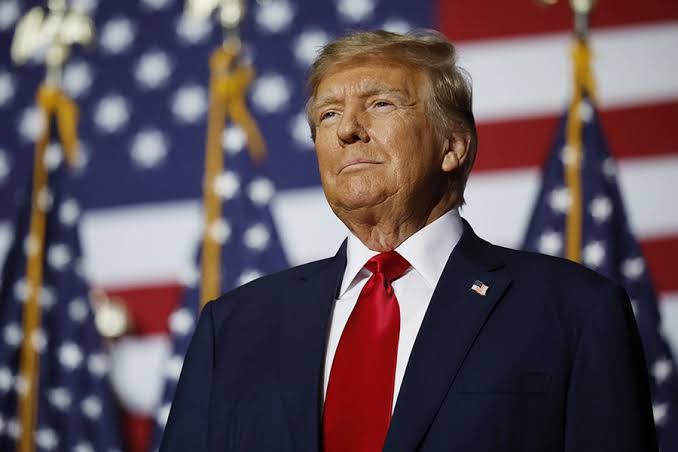Will a Trump Presidency mean well Black immigrants in the US? This is the question on the lips of many in the United States (US) following the emergence of Donald Trump as the 47th democratically elected of the US President.
Trump on Tuesday, 5th November, defeated current Vice President, Kampala Harris, a remarkable comeback four years after he was voted out of the White House and ushering in a new American leadership likely to test democratic institutions at home and relations abroad.
During his campaign, Donald Trump had faced significant backlash after his comments at a New Hampshire rally, where he claimed that immigrants are “poisoning the blood of our country.”
In his speech, Trump specifically mentioned immigrants from Africa, Asia, and other regions, warning that their arrival could lead to a surge in crime and terrorism across the U.S.
He reiterated sentiments previously reported by CNN, stating that people from around the world are “pouring into the country.”
In October 2023, CNN had highlighted a similar statement Trump made in an interview with The National Pulse, a right-leaning publication.
He had expressed concern about rising immigration, saying, “Nobody has ever seen anything like we’re witnessing right now. It is a very sad thing for our country. It’s poisoning the blood of our country.” He further alleged that some immigrants bring diseases and other problems with them.
Also, Trump repeated these claims, saying, “We got a lot of work to do. They’re poisoning the blood of our country.” He went on to add that not only South America but other regions globally contribute to this issue by sending people he described as coming from prisons and mental institutions.
Trump, also had criticized the Joe Biden administration’s handling of immigration.
He asserted, “They’re pouring into our country. Nobody’s even looking at them… The crime is going to be tremendous. The terrorism is going to be…” He added that, under his administration, a substantial part of the border wall was constructed, and more was planned.
Recalled that In 2018 during his first term, Trump reportedly referred to Haiti, El Salvador, and African nations as “shithole countries” during a meeting with Congressional leaders about immigration policies.
He allegedly expressed a preference for immigrants from Norway and certain Asian countries, stating they would contribute more to the U.S. economy. Although Trump denied using such language to describe African nations, he admitted employing strong words on the matter.
Following Trump’s recent remarks, NBC News reported that the Biden campaign issued a statement condemning his language.
The statement asserted that Trump had emulated figures like Hitler and Putin and accused him of advocating for authoritarian policies that could undermine American democracy.
Additionally, Chris Christie, another Republican candidate, called Trump’s remarks “disgusting” during a CNN State of the Union appearance. Christie criticized Trump for stirring resentment and blaming economic and social tensions on foreign-born individuals, adding that he was disappointed in fellow Republicans like Nikki Haley, who have supported Trump’s candidacy.
Many Democratic leaders and Black advocates have criticized Trump’s comments, calling them racially charged and offensive. Janiyah Thomas, director of Team Trump Black Media, responded by accusing Democrats of prioritizing the interests of undocumented immigrants over those of native-born Black Americans, arguing that job gains in the Biden administration were largely due to illegal immigration.
However, contrary to claims by Trump, Government data has consistently revealed that immigrant labour significantly contributes to economic growth and helps create promotional opportunities for native-born workers.
Economists have warned that mass deportation efforts could cost taxpayers up to a trillion dollars and lead to rising living costs, including in housing and food sectors.
According to the U.S. Bureau of Labour Statistics, immigrant workers are playing a key role in driving the U.S. population and economic growth. In 2023, immigrants, primarily from Latin America, accounted for over two-thirds of the population growth in the U.S. Since the beginning of this decade, they have represented nearly three-quarters of total U.S. growth.
Despite claims that immigrants are taking jobs away from native workers, labour economists argue that many immigrant workers fill positions that Americans are reluctant to take, especially in sectors like agriculture and food processing. For instance, Giovanni Peri, a labour economist at the University of California, Davis, has conducted research showing that a surge in immigration, such as the 1980 Mariel Boatlift from Cuba, actually resulted in better employment outcomes for native Black and Hispanic workers.
Peri explained that immigrants often complement the workforce rather than replace it, noting that the roles immigrants fill are often distinct from those sought by native-born Americans. “We have many more vacancies than workers in manual labor, in fact we need many more to fill these roles,” Peri said.
Trump has proposed deporting millions of undocumented immigrants by utilizing the National Guard, a plan that would be expensive and disruptive, according to economists. Peri estimates that such a mass deportation effort could cost the U.S. economy as much as $1 trillion, and lead to significant economic losses, especially in industries like agriculture where immigrant labor is essential.
Immigrants make up about 4% of the U.S. GDP annually, contributing to essential sectors like food production. Without their labor, everyday costs like food prices would likely surge. Peri further warned that a deportation programme would incur not only direct financial costs but also a loss in production, affecting the availability of goods and services.
In a recent interview, Treasury Secretary Janet Yellen echoed these points, acknowledging that immigrant labour is crucial for U.S. economic growth. “On balance, it helps the economy grow without actually depriving other people of jobs,” she said. “It’s not a zero-sum game.”
However, Trump’s stance has created an atmosphere of uncertainty as to what he may likely do to with the Immigrants.



